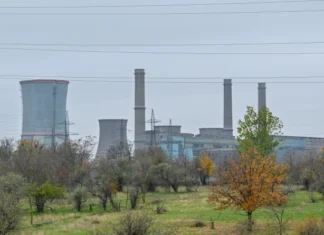In Brașov, authorities have recently identified 46 individuals as suspects in a significant case involving theft and concealment of funds related to the Regia Autonomă de Transport. This investigation has highlighted serious misconduct within the company, particularly focusing on its employees who are suspected of engaging in illicit activities, specifically the theft of diesel fuel.
Reports indicate that these employees allegedly stole diesel and subsequently sold it for personal profit, undermining the integrity of the public transport system. This theft not only poses legal issues but also disrupts the operational capabilities of the Regia Autonomă de Transport, which plays a vital role in providing public transportation services in Brașov.
The investigation has raised concerns about the management and oversight within the company, as a significant number of staff members have been implicated in these activities. The authorities are now working diligently to gather more evidence and build a comprehensive case against these suspects. They are examining various forms of documentation, including fuel usage reports and employee logs, to ascertain the extent of the misconduct.
Local government officials and transport authorities are keenly aware of the implications of this investigation. They understand that such incidents can erode public trust in municipal services, particularly when it involves employees who are entrusted with public resources. Maintaining the integrity of public services is crucial to ensuring that citizens have confidence in their local officials and the services they provide.
The Regia Autonomă de Transport is expected to cooperate fully with law enforcement during this investigation. Such cooperation is essential not only for addressing these current allegations but also for implementing measures to prevent future incidents. The company may need to enhance its internal controls and auditing practices to detect and deter similar misconduct more effectively.
In light of these developments, officials in Brașov are contemplating the implementation of stricter regulations and oversight mechanisms for public service employees. This may involve regular audits and increased monitoring of fuel consumption to ensure that resources are being used correctly and transparently.
The case has garnered significant media attention, igniting discussions about the broader implications of corruption and ethical practices within public service sectors. As further details are unveiled, the community is eagerly awaiting updates on the outcomes of the investigations and any resultant actions that will be taken against those involved.
As the authorities continue their efforts, it is imperative for the public to remain informed about the situation. Transparency will be vital in restoring faith in the local transport authorities and ensuring that such egregious acts do not occur again in the future.
In conclusion, this situation underscores vital concerns regarding accountability and corruption within public service sectors. The ongoing investigations serve as a crucial reminder of the need for transparency and integrity in the management of public resources, and further actions will be closely monitored by both local residents and authorities alike. As Brașov navigates these challenges, it remains committed to upholding ethical standards and restoring public trust.






